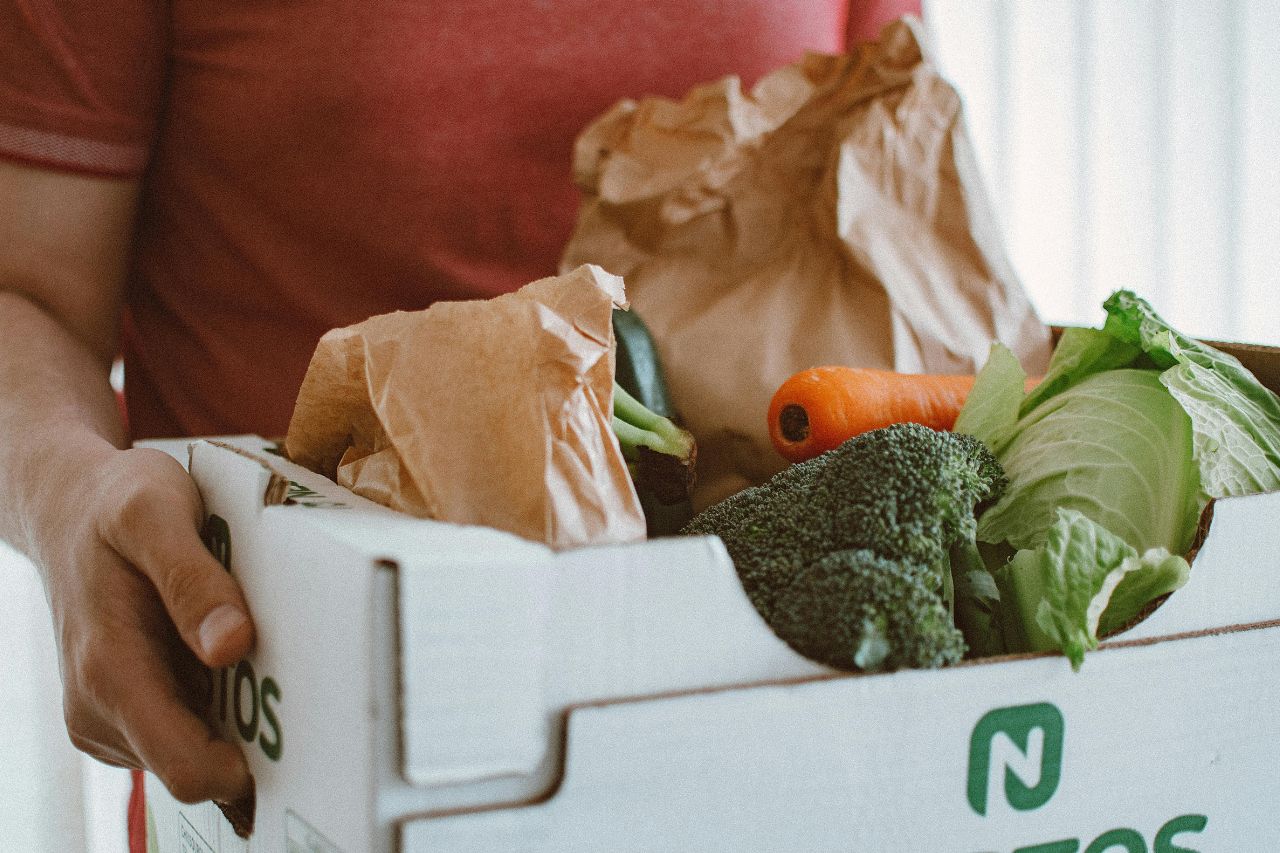
Being able to have a well-rounded diet is a privilege — one that is becoming less certain for many Canadians. Household food insecurity in all 10 provinces is at an all-time high–particularly amongst female single-parent, Black Canadian and Indigenous families.
It is not a coincidence that community food hubs — organizations that provide creative solutions to access fresh produce — are on the rise across the country. While some community food hubs offer brick-and-mortar locations and a welcoming environment for people to shop, others belong to a broader network that links regional food systems.
The concept is a win-win for farmers and shoppers alike. Farmers get directly connected with community members, and those who are in need can access discounted produce. From coast to coast, here are 11 community food hubs that are tackling food insecurity in their regions.
Related: How Community Fridges Toronto is Fighting Food Insecurity
East End Food Hub (Toronto, Ontario)
East End Food Hub collaborates with other local organizations to provide Torontonians with everything from nourishing meals to pay-what-you-can, chef-led cooking workshops. The imaginative Hub operates out of under-utilized community spaces and rents commercial kitchens to up-and-coming food businesses.
Fireweed Food Hub (Manitoba)
Fireweed Food Co-op is the reason why so many Manitoba restaurants, hospitals, schools and grocers get locally sourced produce at a reasonable price. The Co-op’s Food Hub — a farmers’ market-like operation that delivers fresh goods grown only a drive away — are their values in-action. The Co-op is the middleperson between food producers and eaters, negotiating deals amongst companies to ensure all Manitobans know exactly where their food is coming from.
Growers Station (Charlottetown, Prince Edward Island)
Canoe Cove Honey, Roosters Coffee Roasting, and organic mixed vegetable farm Soleil’s Farm, are some of the producers you’ll find at Growers Station, a Food Hub that delivers local goods to stores and restaurants in Prince Edward Island. With the help of PEI’s Certified Organic Producer’s Cooperative, The Hub is expanding its network of trusted growers from one end of the province, all the way to the other.
North Okanagan Land to Table Network (North Okanagan, British Columbia)
Although not a physical location, North Okanagan Land to Table Network has been connecting the dots of North Okanagan’s food system since 2015. The group is building relationships between producers, wholesalers, chefs, consumers and the government, in an effort to increase food production and jobs in the area. Part of North Okanagan Land to Table Network’s success in fighting food insecurity can be attributed to their educational workshops, which bring community members to the table to brainstorm their own solutions to the issue.
Related: An Afro-Caribbean Farmers’ Market is Helping Revitalize a Toronto Neighbourhood
The Alex Community Food Centre”. (Calgary, Alberta)
The Alex builds support systems for those unable to put a meal on the table in hopes that they find refuge in the community, and pick up food skills from others. This Calgary-based Food Hub is a gathering place for everyone, offering drop-in meals and an affordable produce market, as well as classes on gardening and advocacy.
The Depot Community Food Centre (Montreal, Quebec)
Food education is at the core of relieving food insecurity at The Depot, the Notre-Dame-de-Grace neighbourhood’s Food Hub. The Depot Collective Gardens — the Hub’s most popular program — has a knowledgeable staff teaching community members how to maintain a garden and collect its harvest. The Depot also offers the neighborhood small plots of land to sign up for, if they’re interested in growing their own food but don’t have the space or funds for it.
The Mosaic Market (Regina, Saskatchewan)
Regina Food Bank is expanding its hot meal programs to a grocery store-style Food Hub, The Mosaic Market, set to open this summer. The Market will allow community members to browse at their leisure, and say no to the food they won’t be able to use. The organization believes that choice is dignified, empowering and should be the main focus when regions feed those in need.
The Pantry Food Hub (Petitcodiac, New Brunswick)
Known by locals as “The Pantry in Petitcodiac”, The Pantry Food Hub is a not-for-profit local food and craft store in New Brunswick. This one-stop shop for all things local is almost entirely volunteer-run. Their community fridge is filled with perishables donated by individuals and food banks, allowing shoppers to leave with free items, so everyone can leave the store feeling satisfied.
The Station Food Hub Company (Hants County, Nova Scotia)
Dietitian Rebecca Tran and entrepreneur Heather Lunan joined forces in 2019 to found The Station Food Hub Company — a former elementary school turned commercial kitchen and food storage space. The Station Food Hub purchases produce that other buyers don’t — what they describe as “perfectly imperfect” food — and up-cycle it into usable products, which are then sold to local companies.
Western NL Food Hub (Newfoundland)
The Western Newfoundland Food Hub is an online grocery platform owned by nonprofit Food First NL, an organization that has its process down to a science. Each Thursday, farmers upload their products to the platform, and customers place their orders over the weekend. On Tuesdays and Wednesdays, producers pack the orders for staff to pick up, which are then brought to a pickup location for customers to fill their baskets first thing Thursday morning.
Qajuqturvik Community Food Centre (Iqaluit, Nunavut)
Food costs are double the national average in Nunavut, with more than half of households struggling with food insecurity. In a territory with extremely high food inflation and shipping rates, the Qajuqturvik Community Food Centre is more important than ever. The Hub sees over a hundred visitors daily, many being families with young children, who are taught beginner culinary skills and offered curated food boxes.
Read more: How Food Injustice Inspired This 23-Year-Old to Start Her Own Farm, Plus Her Advice for You
